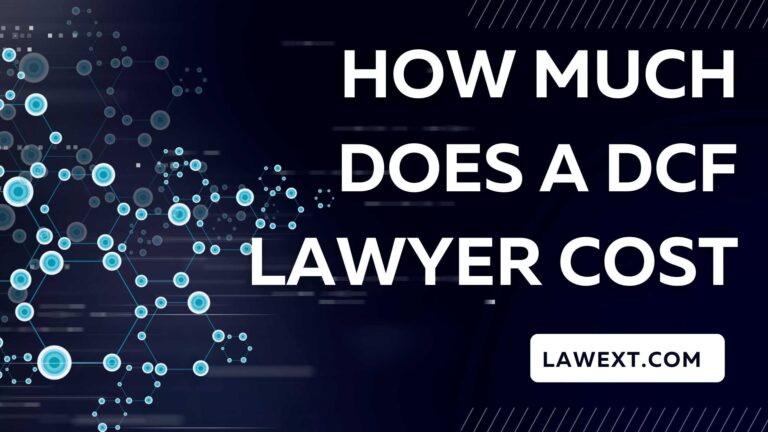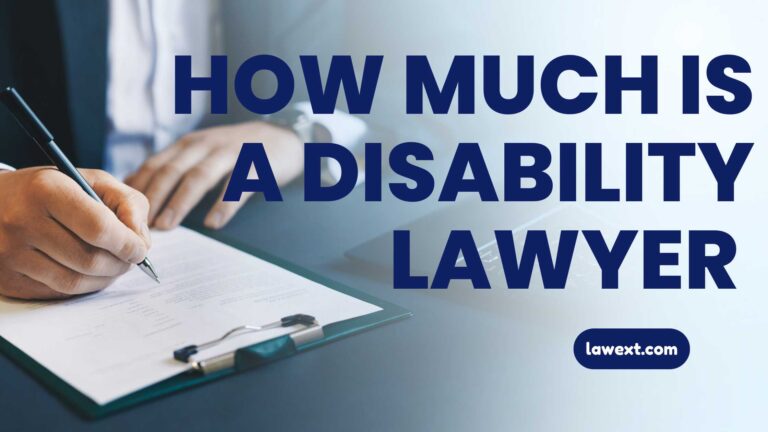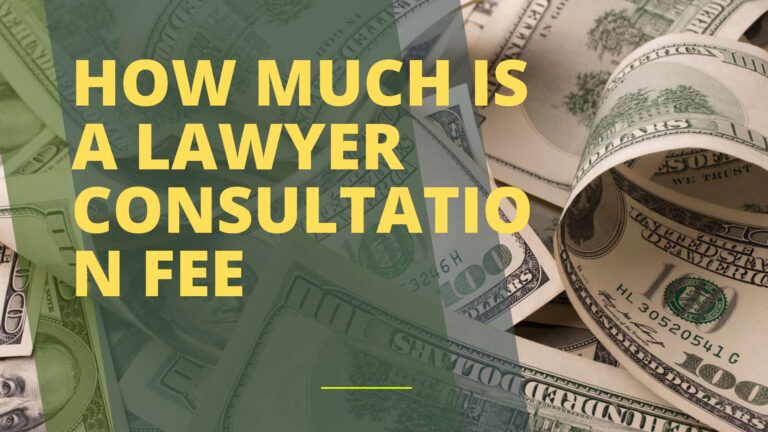How Much Does a Tax Lawyer Cost?
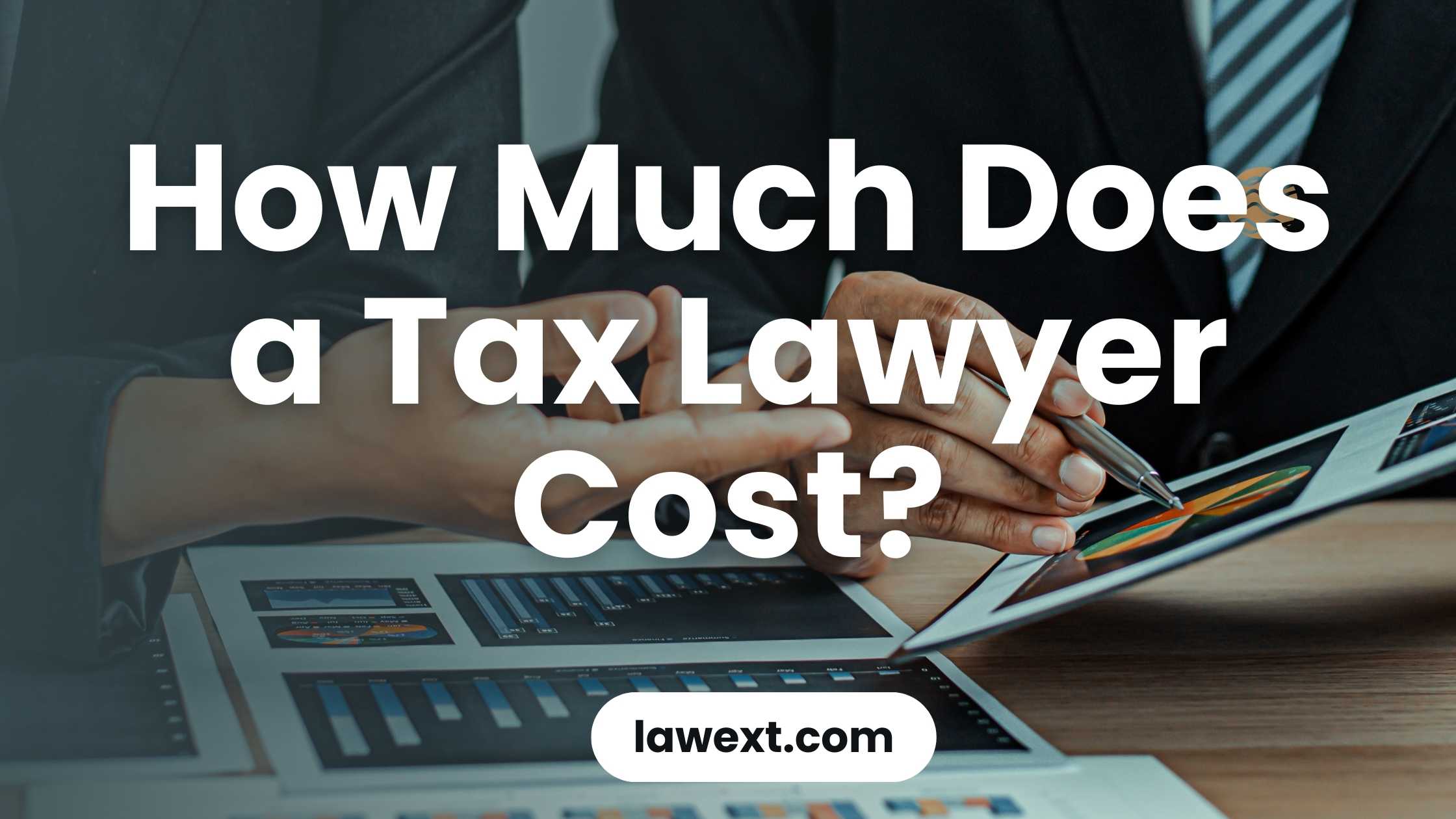
A tax lawyer typically costs around $200 to $400 per hour. Hiring a tax lawyer can be a prudent decision when dealing with complex tax issues or facing an audit from the IRS or state tax authorities.
Table of Contents
Not only can a tax lawyer provide expert advice and guidance, but they can also represent you in legal proceedings and help minimize your tax liability. We will discuss the factors that influence the cost of hiring a tax lawyer, the services they offer, and the potential benefits of working with one.
By understanding the costs and benefits, you can make an informed decision about whether or not hiring a tax lawyer is the right choice for your particular situation.
Factors That Affect The Cost Of Hiring A Tax Lawyer
The cost of hiring a tax lawyer can vary depending on several factors, such as the complexity of the case, the lawyer’s experience and reputation, the location, and the amount of time required to handle the matter. These factors play a significant role in determining how much a tax lawyer will charge for their services.
Complexity Of The Case
The complexity of your tax case is one of the main factors that can affect the cost of hiring a tax lawyer. Tax cases can vary greatly in complexity, depending on factors such as the type of taxes involved, the amount of taxes owed, and the level of detail required to resolve the issues.
Experience And Expertise Of The Lawyer
The experience and expertise of the tax lawyer you choose can also impact the cost of their services. Highly experienced and specialized tax lawyers typically charge higher fees due to their extensive knowledge and successful track record in handling tax cases. However, hiring an experienced lawyer can also increase the chances of a favorable outcome in your case.
Location Of The Lawyer
The location of the tax lawyer or law firm you hire can also affect the cost of their services. Just like any other professional service, the cost of hiring a tax lawyer can vary depending on the local market conditions. Lawyers in major cities or high-cost areas generally charge higher fees compared to those in smaller towns or regions with a lower cost of living. However, it’s important to note that the location should not be the sole factor in your decision-making process. The expertise and reputation of the lawyer should take precedence over their location.
Billing Structure And Fee Arrangement
The billing structure and fee arrangement offered by a tax lawyer or law firm can significantly impact the overall cost of their services. Different lawyers may have different fee structures, such as hourly rates, fixed fees, or contingency fees. It’s important to have a clear understanding of their billing practices before hiring a tax lawyer to avoid any surprises or misunderstandings. You should also inquire about any additional costs, such as administrative fees or court filing fees, that may be involved in your case.
| Factor | Description |
|---|---|
| Complexity of the Case | The level of complexity involved in your tax case, such as the types of taxes, amount owed, and intricacies of the issues. |
| Experience and Expertise of the Lawyer | The level of experience and expertise possessed by the tax lawyer, which can impact their success in handling your case. |
| Location of the Lawyer | The geographical location of the tax lawyer or law firm, which can affect the local market rates for their services. |
| Billing Structure and Fee Arrangement | The way the tax lawyer charges for their services, such as hourly rates, fixed fees, or contingency fees. |
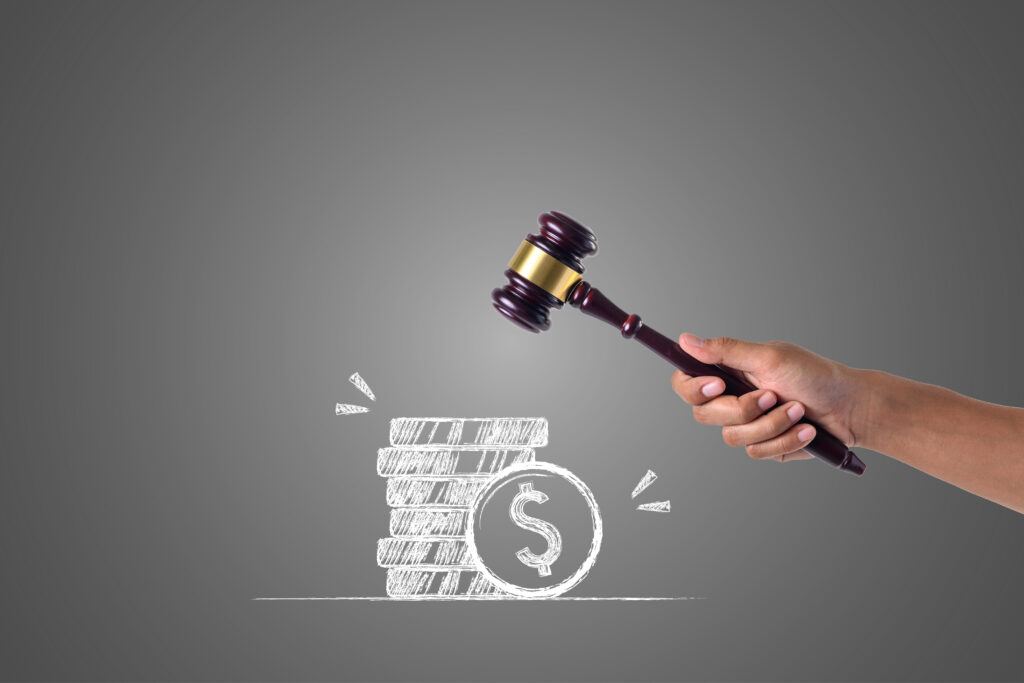
Average Cost Ranges For Tax Lawyers
Tax lawyers can vary in cost depending on factors such as experience and location. The average cost ranges for tax lawyers can range from a few hundred to several thousand dollars, making it important to research and compare rates before making a decision.
- The average cost ranges for tax lawyers can vary based on several factors such as the complexity of the case, the lawyer’s experience, and the specific services required. Understanding the different cost structures can help individuals make an informed decision when seeking legal assistance for tax-related matters.
Hourly Rates
When hiring a tax lawyer, clients often pay an hourly rate for the lawyer’s time spent on their case. Hourly rates can range from $200 to $500 per hour, depending on the lawyer’s expertise and location. More experienced lawyers tend to command higher hourly rates, while lawyers in rural areas may charge lower rates.
Flat Fees
Some tax lawyers may offer their services at a flat fee for specific tasks such as filing back taxes or representing clients in audits. Flat fees can range from $500 to $5,000, depending on the complexity of the issue and the amount of work involved.
Retainer Fees
Clients may choose to retain a tax lawyer by paying a retainer fee, which is an upfront payment for the lawyer’s services. Retainer fees can range from $2,500 to $10,000, depending on the lawyer’s experience and the anticipated amount of work required for the case.
Contingency Fees
In some cases, tax lawyers may work on a contingency fee basis, where they only receive payment if they successfully resolve the client’s tax issue. Contingency fees typically range from 25% to 40% of the amount recovered or saved for the client.
Overall, the cost of hiring a tax lawyer can be significant, but it is essential to consider the potential financial and legal implications of unresolved tax matters. Understanding the different cost structures and consulting with multiple lawyers can help individuals find the best representation for their specific needs.
Additional Costs To Consider
When seeking the services of a tax lawyer, it is essential to understand that the cost extends beyond just their professional fees. There are several additional costs that you should take into account when budgeting for your legal representation. These expenses can vary depending on the complexity of your case, the lawyer’s expertise, and the specific requirements of your situation. In this article, we will explore a few key categories of additional costs that you may encounter when working with a tax lawyer.
Administrative And Court Fees
One of the significant additional costs that you may need to consider is administrative and court fees. These fees are related to administrative tasks and legal proceedings associated with your case. Administrative fees can include charges for filing documents, document retrieval, and other administrative tasks handled by the lawyer’s office. Court fees, on the other hand, are expenses related to legal proceedings, such as filing a lawsuit, attending court hearings, or submitting motions.
A breakdown of potential administrative and court fees:
| Expense Type | Description | Cost Range |
|---|---|---|
| Filing Fees | The fees for filing legal documents with relevant authorities. | $50 – $500 |
| Court Attendance Fees | Fees charged by the lawyer for attending court hearings on your behalf. | $200 – $500 per hour |
| Document Retrieval | Charges for obtaining necessary legal documents and records. | $50 – $200 |
Additional Services And Expenses
Besides the standard legal services, tax lawyers may require additional services and expenses to handle your case effectively. These could include hiring expert witnesses, conducting investigations, or obtaining specialized resources required to build a strong defense or negotiate with tax authorities. It’s crucial to discuss such potential services with your tax lawyer to understand their necessity and associated costs.
Here are a few examples of additional services and expenses that may arise:
- Hiring Expert Witnesses: $1,000 – $5,000 per witness
- Conducting Investigations: $500 – $2,000
- Specialized Resources: Costs incurred for accessing databases, research materials, or software tools.

Travel And Accommodation Costs
In some cases, your tax lawyer may need to travel to specific locations for court appearances or to meet with you and other parties involved. When such travel is required, travel and accommodation costs become part of the overall expenses. These costs can vary depending on the distance traveled, the duration of the trip, and the lawyer’s preferred mode of transportation and accommodation.
It’s important to note that travel-related expenses can add up significantly, especially for cases that require lawyers to travel long distances or spend extended periods away from their home base. The costs associated with travel and accommodation should be discussed with your tax lawyer and considered when estimating the overall cost of your legal representation.
Ways To Save On Tax Lawyer Costs
If you need tax legal help, you may be concerned about the potential costs involved. While hiring a tax lawyer may require an investment, there are several ways you can save on tax lawyer costs without compromising on the quality of legal representation. By seeking free or low-cost legal aid, negotiating and comparing fees, having a clear fee agreement in place, and maximizing efficiency in legal proceedings, you can effectively manage your expenses and obtain the tax assistance you need.
Seeking Free Or Low-cost Legal Aid
If you are facing financial constraints but still require expert tax advice, seeking free or low-cost legal aid can be a viable option. Many legal aid organizations and non-profit agencies offer assistance to individuals who meet certain income criteria. These organizations may have pro bono lawyers or provide legal clinics where you can receive advice without incurring significant costs. Additionally, you can explore local law schools that often have programs offering free or discounted legal services to the public, supervised by experienced attorneys.
Negotiating And Comparing Fees
Negotiating and comparing fees among different tax lawyers can help you find the most cost-effective solution. When consulting with prospective tax attorneys, be sure to discuss their fees openly and inquire about any available discounts or payment plans. Some lawyers may be willing to adjust their fees based on the complexity of your case or your financial situation. Comparing the rates and services of multiple lawyers can also give you a better understanding of prevailing market rates, helping you make an informed decision.
Having A Clear Fee Agreement In Place
To avoid any surprises, it is crucial to have a clear fee agreement in place with your tax lawyer. This agreement should outline the scope of work, the hourly rates or flat fees, and any additional expenses you may be responsible for. Ensure that you fully understand the terms of the agreement before signing it and ask for clarification if needed. Having a well-defined fee agreement will help prevent misunderstandings about costs and ensure transparency throughout the legal process.
Maximizing Efficiency In Legal Proceedings
One effective way to save on tax lawyer costs is to maximize efficiency in legal proceedings. By providing organized and comprehensive documentation, promptly responding to lawyer’s requests, and being prepared for meetings and court appearances, you can help your tax lawyer save time and reduce billable hours. It is also advisable to discuss efficient communication channels, such as email or phone, to avoid unnecessary meetings that could escalate costs. By collaborating with your lawyer effectively, you can streamline the legal process and minimize expenses.
When And Why It’s Worth Hiring A Tax Lawyer
When and Why It’s Worth Hiring a Tax Lawyer
Complex tax issues and disputes, IRS audits and investigations, navigating tax laws and regulations, and tax planning and strategies can often be overwhelming for individuals and businesses. In such situations, hiring a tax lawyer can alleviate the stress and ensure that you receive expert guidance and representation. Let’s delve into the circumstances under which it is worth investing in a tax lawyer’s services.
Complex Tax Issues And Disputes
Complex tax issues and disputes
Navigating intricate tax problems demands specialized knowledge and experience. A tax lawyer helps you understand the complexities and formulate a viable strategy for resolution.
Irs Audits And Investigations
IRS Audits and Investigations
In the event of an IRS audit or investigation, having a tax lawyer by your side provides vital protection and support. Their expertise can make a difference in the outcome of such proceedings.
Navigating Tax Laws And Regulations
Navigating Tax Laws and Regulations
Understanding the ever-changing tax laws and regulations is challenging. A tax lawyer’s expertise ensures that you are in compliance and can navigate the complexities of the tax system effectively.
Tax Planning And Strategies
Tax Planning and Strategies
Developing tax-efficient strategies and ensuring compliance with the tax laws is crucial for individuals and businesses. A tax lawyer can help craft robust tax planning strategies to optimize your tax situation and minimize liabilities.
Conclusion
In understanding how much a tax lawyer costs, it’s evident that fees depend on the complexity of the case. It’s crucial to weigh the potential financial benefits of hiring a tax lawyer against the costs. Hiring an experienced tax lawyer can ultimately save you time, money, and stress.
Consider seeking professional advice to navigate tax-related legal matters effectively.
Gabrielle Casewell, a seasoned legal advocate with an indomitable spirit, navigates the intricacies of law with finesse. Specializing in civil rights and corporate litigation, she combines sharp intellect with unwavering ethics. Casewell's dedication to justice extends beyond courtrooms, shaping her into a beacon for those seeking legal recourse. Her tenacity and compassion redefine the narrative of legal prowess.


